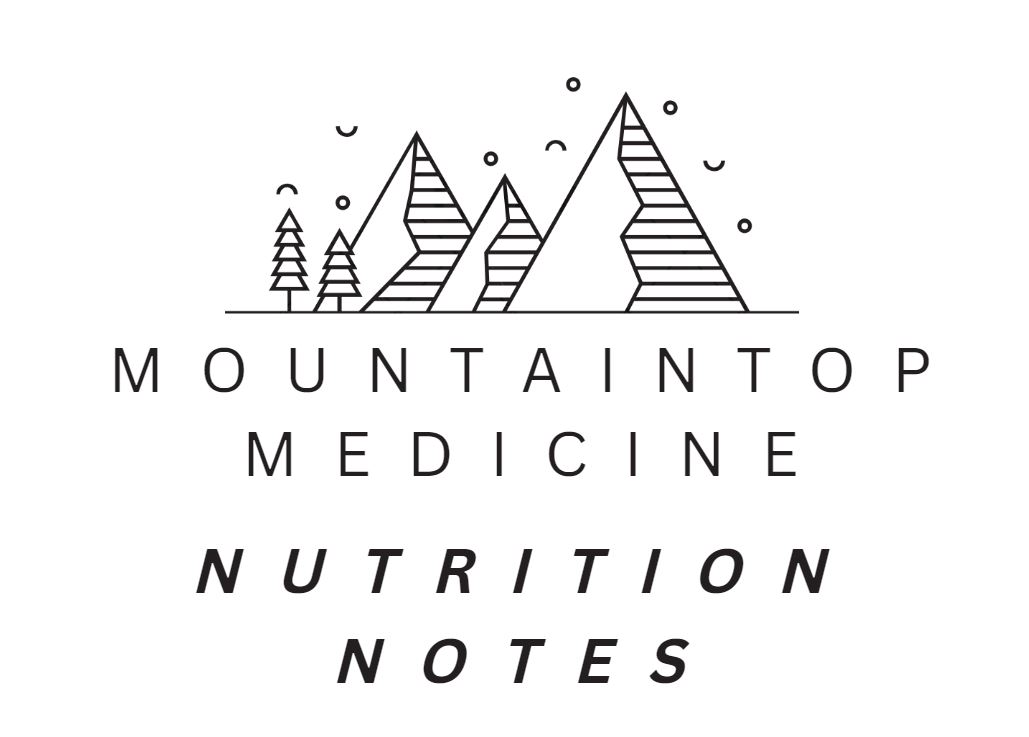How to Make your Eating Habits More Sustainable

Hello again, welcome back to Mountaintop Medicine! This week, I want to share with you one of my biggest passions when it comes to nutrition: sustainable eating. Plenty of research has shown that sustainable habits, specifically dietary, can have a significant impact. Afterall, our food systems are responsible for one-third of greenhouse emissions.

Leah Gardner, EPH Registered Dietitian
What is sustainable eating?
By definition, sustainable eating refers to diets that have little environmental impact, improve food security and nutrient density, and add to the health of present and future generations. But what exactly does this mean? It is an evidence-based idea that how our food is grown and what we consume impacts the environment. Switching to sustainable eating habits has been shown to reduce the environmental impacts of food, improve our health, influence agricultural practices, and empower consumers.
How to Eat More Sustainably
When many people think of sustainable eating, a vegetarian or vegan diet comes to mind. And while these certainly are sustainable ways of eating, it has been proven that they can lead to many nutrient deficiencies and are not a realistic diet choice for everyone. Rather than excluding major food groups like meat, one of the best sustainable practices is to source your foods from sustainable sources. Sustainable food growers and producers do not use harmful chemicals and fertilizers, limit food transportation distances, package foods in environmentally friendly boxes or cartons, and limit their water use when producing foods.
Other sustainable eating habits:
- Include more plant-based foods in your diet. Fruits, vegetables, whole grains, beans, legumes, nuts, and seeds not only provide nutrients like vitamins, minerals, and antioxidants, but are also better for the environment because they do not take a lot of carbon to create.
- Eat seasonal produce. This may look like eating long-storage and cold-tolerant foods in colder months such as potatoes, carrots, and onions, choosing fast-growing produce in the spring like lettuce, cabbage, and asparagus, and tomatoes, berries, and squashes in the summertime.
- Save and compost food scraps and re-use them as garden fertilizer or drop them off at a local compost.
- Grow your own food. Even if you do not have the capability to grow a large garden or create some fancy raised beds, you can simply grow vegetables and herbs in pots in your window or on a porch.
- Plan your weekly meals in advance and prep ingredients to cut back on food waste. This way, you know exactly what to purchase at the grocery store. The FDA estimates that food waste makes up 30-40% of our nation’s food supply.
- Join a local Community Supported Agriculture (CSA) program where you can purchase shares of farm-grown and raised products.
- Use sustainable food packaging like reusable food containers and grocery bags.
Sustainable eating does not have to be difficult. Making small changes today can make a significant impact on the health of the environment and on ourselves.
A quick reminder- I offer outpatient nutrition counseling and education services at Estes Park Health. If you are interested, contact your healthcare provider for a referral. If you have any questions or if there are any nutrition-related topics that you would like me to discuss here on Nutrition Notes, please reach out at LGardner@EPH.org.


